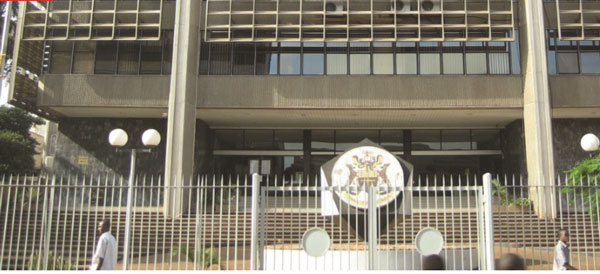
When he returned, he found a tonne of complaints about several appointments. The board had been petitioned but had ignored the complaints.
Mutebile was concerned that he had not been consulted.
In the meantime, the bank was in a crisis, it had suffered loss of confidence, was grappling with Crane
Bank issues, and had been facing serious failures in some of its systems, according to insiders.
He told the committee that before he made the changes, senior officials were in the habit of hiding details activities at BoU from him.
While he did not mention a single name, insiders could tell he was referring to now controversial former BoU Executive Director Supervision Justine Bagyenda.
BoU records seen by The Independent reveal that Bagyenda authorised the law firm, MMAKs Advocates as the Transaction Advisor for the Crane Bank sale and also authorised the audit firm PriceWaterHouse Coopers to carry out a forensic audit of Crane Bank.
When the report came out, Bagyenda did not share it with Mutebile in its entirety. Mutebile was riled when he learnt about the existence of the entire document and received a copy from another source.
Amongst all appointments Mutebile made, that of Tumubwiine Twinemanzi has been the biggest problem. Twinemanzi’s father, Manzi Tumubwiine, served on the BoU board in the past, is seen as a friend of Mutebile, and also happens to come from Kigezi.
When Twiinemanzi was appointed, IGG Mulyagonja was petitioned that among others, Mutebile was driven by tribalism in appointing Twiinemanzi and others from western Uganda. Some board members first blocked Twiinemanzi from presenting before the board. Others always made sure they avoided attending board meetings if Twiinemanzi was to appear.
Before Mutebile appeared before the Museveni commitee, Bagyenda’s deputy, Benedict Sekabira complained before the committee that the job Twiinemanzi took belonged to him.
Another senior official, Oketcho, also initially told the committee that Mutebile’s appointments were outside BoU policy. He said BoU hardly appoints people from outside its walls.
But the investigating team found that while in the past BoU had a policy to recruit about 20 people annually at the lowest ranks who would be groomed to grow into senior positions, it had changed. Indeed, the investigating committee was given a list of over 100 staff who BoU recruited from outside its walls.
Mutebile explained that he made changes in order to redirect the bank.
Mutebile added that before the changes, BoU had hit a dead end regarding the negotiations with Crane Bank proprietors. But following the changes, he said, BoU was making good progress with the negotiations.
Specifically, in Twiinemanzi’s case, Mutebile said he was not the first to be recruited from outside BoU. He also said that he deemed him qualified for the job given the fact that he was in a senior position at Uganda Communications Commission (UCC) and had done research about BoU.
Many had hoped that the committee would make recommendations that would streamline BoU operations; especially at the most senior levels and guide President Museveni to intervene appropriately.
Instead, based on the leaked report, tensions appear to be rising, many staff are anxious, and those promoted by Mutebile fear they could be demoted.
The sources privy to the contents of the draft report said firing Mutebile and his deputy could plunge the central bank into a leadership vacuum and send a negative signal about Uganda’s economy. They are pushing for a smooth transition—where the two leaders complete their terms and are not reappointed.
Insiders also note that some of the recommendations in the draft report appear contradictory. For instance, while at one level the team recommends that the BoU Board stay away from the recruitment processes at the bank to be able to play its oversight role, on the other hand they recommend that the board hire Mutebile and Kasekende’s replacement.
Other recommendations are being in positive light. One of these, an insider told The Independent, is the recommendation that there should be there should be two Deputy Governor—one in charge of administration and the other in charge of operations.
The current situation where there is one deputy governor, who sees himself as a natural successor of the governor and controls several administration and operation aspects at the bank is feared to have led to the power struggle between Mutebile and Kasekende, which is seen as one of the major causes of the crisis at BoU.
Also, while the IGG’s draft appears lenient with the board, some of the committee members see the board as part of the problem. As The Independent has previously reported, the board almost overthrew Mutebile over the Feb.7 reshuffle.
 The Independent Uganda: You get the Truth we Pay the Price
The Independent Uganda: You get the Truth we Pay the Price





